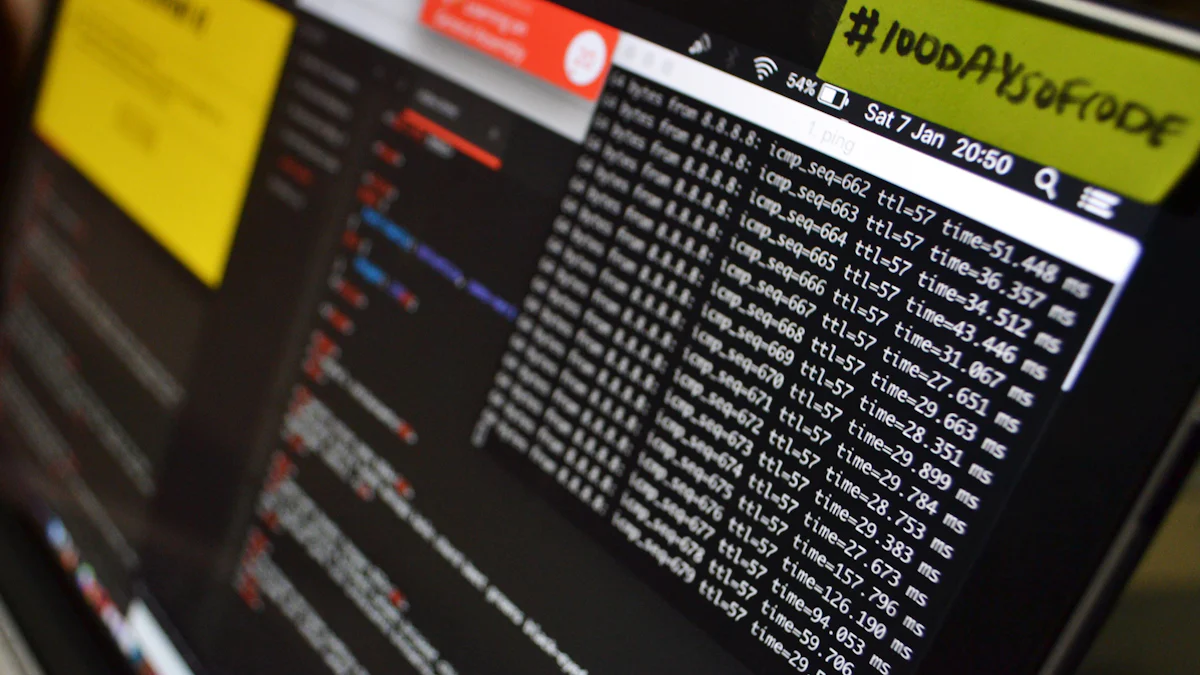How to Secure Candidate Data in AI Recruitment

AI-driven processes have transformed hiring, but they also bring challenges in recruitment data security. You handle sensitive information like resumes, contact details, and employment histories. Without proper safeguards, this data faces risks. Hackers may steal personally identifiable information (PII), leading to privacy violations. Algorithmic bias can unfairly discriminate against candidates based on gender, race, or age. Improper data handling may result in lawsuits or reputational harm. To protect candidate data, you must adopt robust data privacy measures and ensure compliance with evolving regulations.
Key Takeaways
Use strong privacy rules to keep candidate data safe from harm.
Check AI systems often to find and fix unfair biases.
Collect only necessary data to lower the chance of breaches.
Ask candidates clearly before using their data to build trust.
Do regular security checks to find weak spots and protect data.
Understanding Recruitment Data Security

What Is Candidate Data
Candidate data refers to the personal and professional information you collect during the hiring process. This includes resumes, contact details, employment history, and educational qualifications. It may also involve sensitive data like social security numbers, references, or even behavioral assessments. With AI-driven processes, you might gather additional insights, such as personality traits or cultural fit, through automated tools. This data is essential for evaluating candidates but requires careful handling to ensure data protection and compliance with privacy laws.
The Role of AI in Hiring
AI in hiring has revolutionized recruitment by improving efficiency and decision-making. It helps you screen resumes, analyze candidate profiles, and match applicants to roles based on skills and experience. Companies using AI in recruitment report a 30% reduction in hiring time and a 38% increase in job fit, leading to better retention rates. For example, Unilever uses AI to process over one million applications annually, streamlining its hiring process. Brands like IBM and Facebook leverage AI to align recruitment strategies with company culture, ensuring a higher quality of hires. However, while AI-driven processes enhance efficiency, they also introduce risks, such as bias and data misuse, if not managed properly.
Why Data Privacy Is Critical in AI Recruitment
Data privacy is vital in AI recruitment to protect candidates and maintain trust. AI tools often handle sensitive information, such as personally identifiable information (PII). Without robust data privacy measures, this data becomes vulnerable to breaches, exposing candidates to identity theft or fraud. Improper data collection, like scraping social media, can lead to biased hiring decisions based on inferred attributes. In one case, a tech company discontinued its AI recruitment tool due to bias favoring male candidates. Ensuring data privacy safeguards candidates from discrimination and shields your organization from lawsuits and reputational damage. By prioritizing data privacy, you create a fair and secure recruitment environment.
Challenges in Recruitment Data Security
Risks in Data Collection and Storage
Recruitment platforms often face vulnerabilities in data collection and storage systems. Weak authentication protocols, such as the absence of multi-factor authentication (MFA), can expose sensitive candidate information. For instance, the 2018 iCIMS data breach compromised the personal details of over 30,000 candidates due to inadequate security measures. Malware attacks also pose significant risks. Cybercriminals may use fake recruitment websites to steal sensitive data. Insider threats, where employees misuse their access to candidate information, further complicate data protection efforts.
To mitigate these risks, you should implement robust security measures. Encrypting data and adopting MFA can prevent unauthorized access. Regularly monitoring systems for malware and training employees on secure data handling practices can also reduce vulnerabilities. These steps ensure better recruitment data security and protect candidates' privacy.
Bias and Discrimination in AI Systems
AI in hiring can unintentionally perpetuate biases, leading to unfair recruitment practices. Historical inequities encoded in training data may result in discrimination against underrepresented groups. For example, AI systems trained on biased data might favor male candidates over equally qualified female applicants. Lack of transparency in AI decision-making processes can further exacerbate this issue, making it difficult to identify and correct biases.
To address these challenges, you should regularly audit AI systems to detect and eliminate biases. Diversifying training data to include a wide range of demographics can improve fairness. Human oversight in the hiring process ensures ethical decision-making and reduces the risk of biased outcomes. By prioritizing fairness, you can build trust and comply with data privacy laws.
Compliance with Evolving Privacy Laws
Adhering to data privacy laws is essential for maintaining trust and avoiding legal penalties. Regulations like GDPR, CCPA, and PIPEDA require organizations to handle candidate data responsibly. GDPR mandates explicit consent for data processing and grants individuals the right to be forgotten. CCPA provides California residents with control over their personal information. Non-compliance with these laws can result in hefty fines and reputational damage.
You must stay updated on legal changes and collaborate with compliance experts to ensure adherence. Clear communication of data policies and obtaining explicit candidate consent are crucial. These practices not only protect candidates but also safeguard your organization from legal risks.
Threats of Data Breaches and Cyberattacks
Cyberattacks pose a significant risk to recruitment data security. Hackers often target recruitment platforms because they store sensitive candidate information. You must understand the common methods cybercriminals use to breach these systems to protect your data effectively.
Malware attacks: Hackers frequently use malware to infiltrate systems. Fake recruitment websites often serve as traps, tricking users into sharing personal information.
Insider threats: Employees with access to sensitive data can unintentionally or deliberately cause breaches. Mismanagement of access rights increases this risk.
These threats can lead to severe consequences, including identity theft, financial loss, and reputational damage. A single breach can compromise thousands of candidates' personal details, eroding trust in your organization.
To combat these risks, you should adopt advanced cybersecurity measures. Start by conducting regular security audits to identify vulnerabilities in your systems. Limiting access to sensitive data reduces the likelihood of insider threats. Encrypting data at rest ensures that even if hackers gain access, the information remains unreadable. Employee training on data protection minimizes human error, which is often a weak link in cybersecurity.
Tip: Implementing these measures not only protects candidate data but also demonstrates your commitment to privacy and security.
Staying vigilant against cyberattacks requires a proactive approach. By understanding the tactics used by cybercriminals and adopting robust defenses, you can safeguard your recruitment data and maintain trust with your candidates.
Strategies for Ensuring Data Privacy

Data Minimization Practices
Collecting Only Essential Information
You should limit candidate data collection to only what is necessary for the hiring process. Gathering excessive information increases the risk of data breaches and non-compliance with data privacy laws. For example, instead of requesting detailed personal histories, focus on qualifications, skills, and experience relevant to the role. This approach aligns with ethical AI implementation and reduces the likelihood of mishandling sensitive data. By adopting this practice, you demonstrate respect for candidate privacy and build trust in your recruitment process.
Avoiding Storage of Sensitive Data
Storing sensitive data unnecessarily exposes your organization to security risks. Avoid retaining information like social security numbers or financial details unless absolutely required. If you must store such data, ensure it is encrypted and access is restricted. Regularly review your data storage practices to identify and eliminate unnecessary records. These steps not only enhance data privacy but also help you comply with data privacy laws.
Anonymization and De-Identification
Techniques for Data Masking
Data masking is a powerful tool for protecting candidate information. It modifies sensitive data to create a non-sensitive version that can still be used for analysis. Common techniques include pseudonymization, which replaces private identifiers with pseudonyms, and generalization, which uses ranges instead of exact values. Data swapping and perturbation add further layers of security by rearranging or slightly altering data. Synthetic data, which generates entirely new datasets, ensures privacy while enabling insights. These methods are essential for maintaining compliance and fostering a positive candidate experience.
Separating Personal Identifiers
Separating personal identifiers from other data is another effective way to protect candidate information. By storing names, contact details, and other identifiers in a separate database, you reduce the risk of unauthorized access. This practice ensures that even if one dataset is compromised, the information remains incomplete and less useful to attackers. Implementing this strategy demonstrates your commitment to ethical AI implementation and data privacy.
Transparency in Data Practices
Clear Communication of Data Policies
Transparency in data handling is crucial for building trust with candidates. You should establish clear policies outlining what data is collected, how it is used, and who has access to it. Use plain language to avoid confusion and ensure candidates understand your practices. Publish these policies on your website and make them easily accessible. Regularly update them to reflect changes in your processes or data privacy laws. Clear communication fosters confidence in your AI-driven processes and strengthens your employer brand.
Obtaining Explicit Candidate Consent
Explicit consent is a cornerstone of ethical data practices. Inform candidates about how their data will be used and obtain their agreement before proceeding. This step not only ensures compliance with data privacy laws but also builds trust. Candidates are increasingly aware of their digital footprint and value transparency. Failing to secure consent can lead to lawsuits, reputational damage, and erosion of trust. By prioritizing consent, you ensure transparency and consent in your recruitment process, creating a fair and secure environment.
Regular Privacy Assessments
Conducting Routine Security Audits
Routine security audits are essential for identifying and addressing vulnerabilities in your recruitment systems. These audits help you stay ahead of potential threats and ensure compliance with data privacy laws. Schedule audits at least semi-annually or after significant system updates. Use third-party auditors for unbiased evaluations and to uncover blind spots in your processes.
Leverage AI-powered tools to streamline the auditing process. These tools can efficiently detect weaknesses in your systems, saving time and resources. Document all findings thoroughly to track progress and prioritize remediation efforts. Treat audits as an ongoing process rather than a one-time activity. Continuous improvement ensures your systems remain secure and adaptable to emerging threats.
Tip: Regular audits not only protect candidate data but also demonstrate your commitment to ethical practices in ai in hiring.
Addressing Identified Vulnerabilities
Once you identify vulnerabilities, act promptly to resolve them. Start by involving key stakeholders from different departments to ensure a comprehensive approach. Implement solutions based on the severity of the risks. For example, encrypt sensitive data or update outdated software to prevent exploitation.
Establish continuous monitoring systems to detect new vulnerabilities as they arise. This proactive approach minimizes risks and ensures long-term data security. Keep detailed records of all actions taken to address vulnerabilities. These records help you maintain compliance and provide a reference for future audits.
Governance Frameworks for Data Privacy
Establishing Data Handling Policies
A strong governance framework begins with clear data handling policies. These policies should outline how you collect, store, and process candidate data. Ensure compliance with legal standards like GDPR and CCPA. Include technical safeguards, such as encryption and access controls, to protect personal information.
According to The Data Governance Institute, a Data Governance Framework is "a logical structure for classifying, organizing, and communicating complex activities involved in making decisions about and taking action on enterprise data."
Conduct Data Protection Impact Assessments (DPIAs) to evaluate risks associated with your data practices. Regularly review and update your policies to adapt to changes in technology and regulations.
Training Teams on Privacy Best Practices
Your team plays a crucial role in maintaining data privacy. Provide ongoing training to keep employees informed about the latest threats and best practices. Include remote employees in these initiatives to ensure consistency across your organization.
Simulate real-life cyber threats during training sessions to give employees practical experience. Encourage an honest environment where team members feel comfortable reporting breaches or mistakes. Send regular reminders about your data protection policies to reinforce their importance. Evaluate the effectiveness of your training programs through assessments and surveys.
Note: Effective training ensures your team understands their responsibilities and uses data protection tools correctly, enhancing the security of ai in hiring processes.
Staying Compliant with Privacy Laws
Overview of Key Regulations (e.g., GDPR, CCPA)
Understanding key data privacy laws is essential for protecting candidate information and avoiding legal risks. The General Data Protection Regulation (GDPR) applies to organizations handling data from EU residents. It requires explicit consent for data collection and grants individuals the right to access or delete their information. The California Consumer Privacy Act (CCPA) focuses on giving California residents control over their personal data. CCPA compliance involves informing candidates about data usage and allowing them to opt out of data sharing.
Other regulations, like Canada’s PIPEDA, emphasize accountability and transparency in data handling. These laws aim to protect individuals from privacy and legal issues while ensuring organizations adopt ethical practices. Familiarizing yourself with these regulations helps you align your recruitment processes with global standards.
Adapting to Legal Changes
Data privacy laws evolve frequently, requiring you to stay proactive. Institutionalizing data privacy as a core value ensures your team prioritizes compliance. This approach makes adapting to new regulations seamless.
Here are steps to help you stay compliant:
Regularly educate HR teams about the latest compliance regulations.
Conduct frequent audits of recruitment processes to identify compliance gaps.
Maintain clear communication with candidates regarding data usage and privacy policies.
Additionally, establish data security protocols to protect candidate information. Ongoing training for HR teams ensures they remain updated on changes in data privacy laws. These practices not only safeguard candidate data but also build trust in your recruitment process.
Collaborating with Legal and Compliance Experts
Legal and compliance experts play a vital role in managing recruitment data. They help you align your practices with current regulations and standards.
Work with legal and compliance experts to ensure that recruitment practices align with the most current regulations and standards.
Collaborating with these professionals reduces the risk of non-compliance. They provide insights into complex data protection laws and help you address privacy and legal issues effectively. Their expertise ensures your organization remains prepared for regulatory changes, minimizing potential legal risks.
Securing candidate data is essential in AI-driven hiring. Recruitment data security protects sensitive information, builds trust, and ensures compliance with privacy laws. Proactive strategies like data minimization, anonymization, and regular audits reduce risks and enhance your hiring process.
Organizations must prioritize data privacy to avoid breaches and maintain trust. Consider these key points:
Key Point | Description |
|---|---|
Data Breaches Harm Business | Fines and penalties for non-compliance risk customer data and intellectual property. |
Brand Reputation | 46% of organizations reported reputational damage due to privacy breaches. |
Customer Trust | 65% of individuals lost trust in organizations after a data breach. |
Competitive Advantage | Prioritizing privacy differentiates businesses, addressing privacy concerns of 75% of US households. |
Innovation | Strong privacy programs drive operational efficiency and innovation. |
Investing in secure AI systems and robust privacy measures strengthens your recruitment process and sets your organization apart. Take action today to protect candidate data and foster a trustworthy hiring environment.
FAQ
What is the most effective way to protect candidate data during recruitment?
You should implement encryption for all stored and transmitted data. Use multi-factor authentication (MFA) to secure access. Regularly audit your systems to identify vulnerabilities. These steps ensure that sensitive information remains protected from unauthorized access.
How can you ensure AI systems in recruitment are unbiased?
Audit your AI tools frequently to detect and eliminate biases. Use diverse datasets for training AI models. Include human oversight in decision-making to ensure fairness. These practices help you create an equitable recruitment process.
Do you need explicit consent from candidates to use their data?
Yes, you must obtain explicit consent before collecting or using candidate data. Inform candidates about how their data will be used. This practice ensures compliance with privacy laws and builds trust in your recruitment process.
How often should you conduct security audits for recruitment systems?
You should conduct security audits at least twice a year. Perform additional audits after major system updates or changes. Regular audits help you identify and address vulnerabilities, ensuring ongoing data protection.
What should you do if a data breach occurs?
Act immediately by notifying affected candidates and relevant authorities. Investigate the breach to identify its cause. Strengthen your security measures to prevent future incidents. Transparency and swift action help you maintain trust and comply with legal requirements.
See Also
Improving Candidate Experience Through AI Recruitment Tools
Using AI Software to Forecast Candidate Success Effectively
Transform Your Hiring Approach with MokaHR's AI Solutions
Streamlined Onboarding Through Data-Driven Tracking Systems
Improving Recruitment Decisions with Real-Time Data Insights
From recruiting candidates to onboarding new team members, MokaHR gives your company everything you need to be great at hiring.
Subscribe for more information

